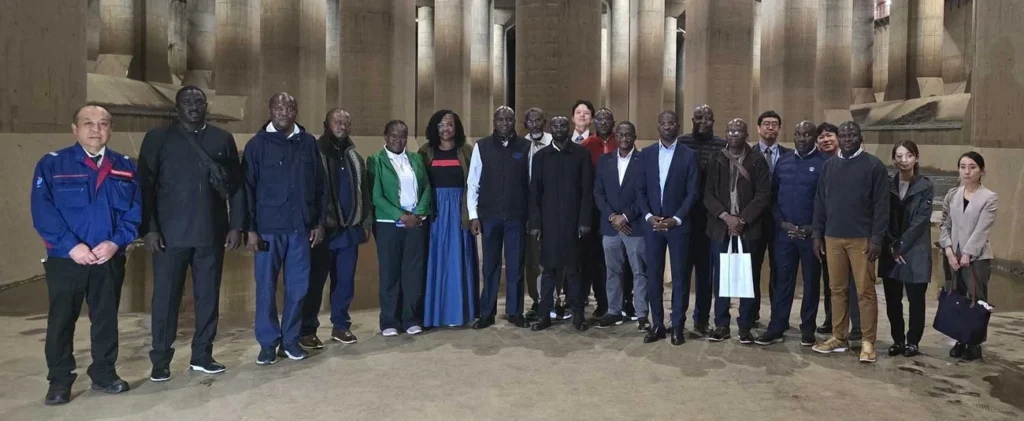African Development Bank Leads High-Level Delegation to Japan for Urban Development and Climate Resilience Study
A 23-member delegation, comprising ministers and representatives from seven African nations and officials from the African Development Bank (AfDB), has concluded a fact-finding mission to Japan, aimed at learning from the country’s advanced urban development and climate resilience strategies.
The delegation, which included officials from Benin, Burkina Faso, Cameroon, Kenya, Mauritania, Mozambique, and Senegal, engaged in a week-long study tour organized in collaboration with Japan’s Ministry of Finance and the Ministry of Land, Infrastructure, Transport and Tourism.
The mission included visits to Tokyo, Tsukuba, Shizuoka, and Kasukabe, as well as meetings with the Japan International Cooperation Agency (JICA), the Japan Aerospace Exploration Agency (JAXA), the International Center for Water Hazard and Risk Management at the University of Tokyo, and various metropolitan governments.
The initiative aimed to enhance Africa’s capacity in urban water and sanitation infrastructure development, disaster risk management, and climate-resilient governance. Japan’s long history of flood control and disaster mitigation served as a key learning point for the delegation.
Nomoto Takaaki, Executive Director for Japan, Brazil, Argentina, Austria, and Saudi Arabia at the AfDB, emphasizedd the importance of the mission, stating, “This is a timely initiative as African countries increasingly face the impacts of climate change. The high-level participation underscores Africa’s commitment to addressing these emerging challenges through knowledge exchange, capacity building, and innovative technical solutions.”
Japan’s former Minister of Foreign Affairs and Co-Chair of the United Nations 2023 Water Conference, Yoko Kamikawa, welcomed the delegation, referencing Japan’s historical disaster management strategies. She cited the 1974 Shizuoka flood disaster as an example of how Japan has continuously improved its flood control measures and expressed optimism about Japan’s contribution to Africa’s flood management efforts.
The delegation also engaged with Japanese private sector companies specializing in advanced water supply and sanitation services, flood regulation, and infrastructure financing. These engagements aimed at fostering technology transfer and investment partnerships for sustainable urban planning in Africa.
Africa’s rapid urbanization presents significant challenges in providing adequate water and sanitation infrastructure, especially amid intensifying climate change. Recent disasters, such as the September 2024 floods in Senegal that displaced over 55,000 people and the devastation caused by Cyclone Idai in 2019, highlight the urgent need for improved disaster preparedness and resilient urban infrastructure.
Mtchera Chirwa, AfDB’s Acting Director for Water Development and Sanitation, emphasized the importance of the mission, stating, “Cutting-edge technologies such as early warning systems and advanced flood control mechanisms will be instrumental in shaping future partnerships and projects.”
Chirwa further noted that the high-level participation from AfDB’s Regional Member Countries demonstrates African leaders’ commitment to securing sustainable solutions to the continent’s urban and climate challenges. The delegation’s findings are expected to inform future infrastructure investment strategies and policy recommendations to enhance resilience across African cities.



